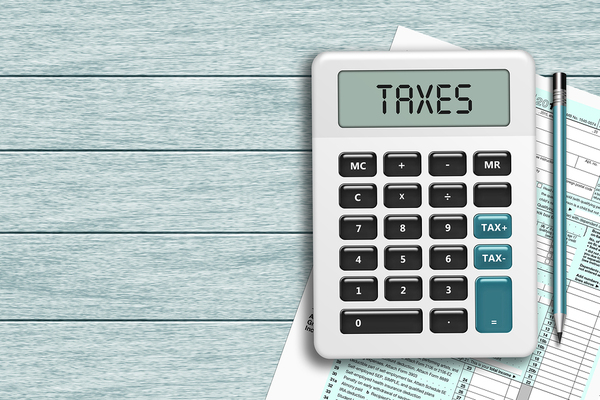
Are you thinking of investing in bitcoin?
If so, you need to be aware of the potential tax implications, particularly if you live in the United States. While bitcoin can provide some very promising returns, you will incur tax liability for any capital gains produced.
In 2014, the Internal Revenue Service (IRS) announced that it was releasing specific guidance on how digital currencies would be treated for tax purposes.
“In some environments, virtual currency operates like ‘real’ currency, meaning that it acts just like the ‘coin and paper money’ that has been designated ‘legal tender’,” the IRS stated.
IRS: Bitcoin = Property
For the purpose of calculating federal tax liability, bitcoin is treated as property, according to the IRS. As an investor, your compliance with the law requires keeping track of any gains or losses and reporting them to the IRS on Schedule D and Form 8949 in the same way you would report gains or losses involving stocks or bonds.
Bitcoin Is Not Anonymous
Originally, bitcoin advocates contended that the currency was anonymous. However, bitcoin is not strictly anonymous, as any investor who uses a bitcoin address to make transactions can build up a trail of transactions that attach to that address.
What does this mean for you as an investor? Be honest. Do not assume that you will be able to keep your bitcoin investments from the prying eyes of Uncle Sam.
Keep Records
Since bitcoin is taxable, it is important to keep track of any and all investments in the digital currency.
“The key thing going forward is maintaining records, substantially similar to stock,” Jason Tyra, a Texas-based CPA who specializes in bitcoin, told The Balance. “Incomplete records might as well be no records.”
Every time you buy or sell bitcoin, make sure to keep track of key details including price, volume, and the time of the transaction. One easy way to do so is to simply write this data in a Google Doc, since using this method will not put you at risk of losing your crucial information should your hard drive crash.
However, if you are looking to keep track of your transactions using a more tangible resource, try using a simple paper ledger.

Calculating Gains and Losses
Once you have a record of all your transaction information, you can begin determining how much you owe the IRS for any gains or losses. Doing so requires you to calculate bitcoin’s fair market value when you bought and sold the digital currency.
In other words, you need to determine exactly what your bitcoin transactions were worth in U.S. dollars.
The IRS guidance specifically states:
“If a virtual currency is listed on an exchange and the exchange rate is established by market supply and demand, the fair market value of the virtual currency is determined by converting the virtual currency into U.S. dollars.”
Keep in mind that there are different rates for short-term (holding an asset for one year or less) and long-term capital gains (holding an asset for more than a year). Tax rates vary by state, so it may be beneficial to consult a qualified tax advisor or other professional.

Summary
If you want to invest in bitcoin, is it important to know the digital currency’s tax implications. Fortunately, the IRS has provided guidance on the matter, declaring that bitcoin is treated like property for federal tax purposes.
With this knowledge and some simple techniques for recording transactions and calculating their value, you will be well-prepared when tax season rolls around.
For more helpful information regarding bitcoin, subscribe to Bitcoin Market Journal today.

